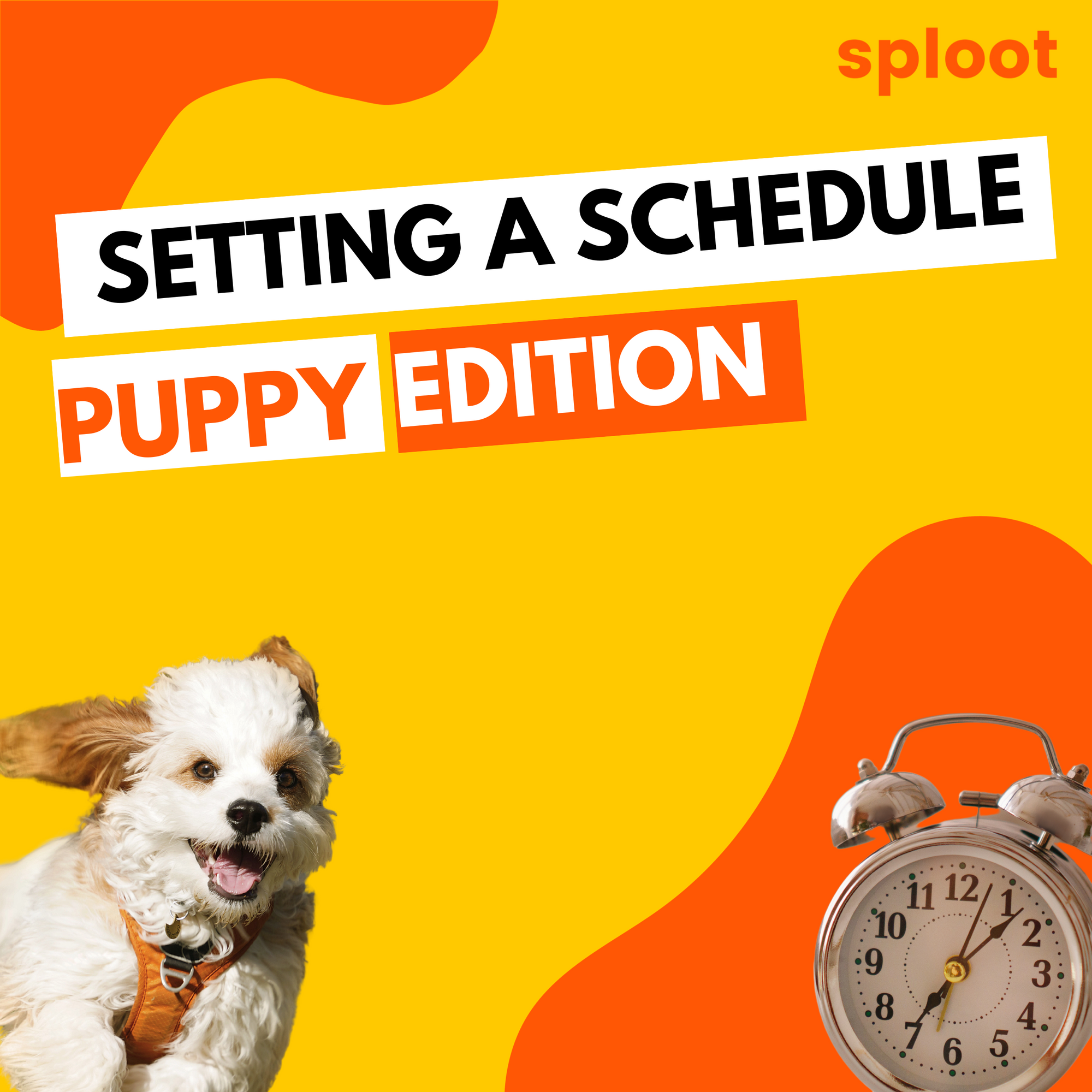Setting a Schedule for Your Pet

When a you as a pet parent bring home a new puppy, they are trying to adapt to its new environment and family. That's why having a schedule which they can follow is helpful as they instinctively relax knowing what is coming next. It's important not to stress if you cannot follow the routine every single day, as long as you're able to stick to it for most days then you're doing a great job.
Here are some important scheduling tips for you to follow as a pet parent:
Schedule Potty Breaks:
When puppies relieve themselves inside your house, it can become quite a task to clean their mess. That's why it is important to keep consistent potty breaks for your puppy so that they can relieve themselves often.
Young puppies require to be taken outside more often for potty breaks. As a guideline, take your puppies age in months and divide it in half to know how often to take them out. For example, if your puppy is 6 months old, then you should be taking them out every 3 hours for their potty breaks.
Feeding Schedule:
If you're an early riser or late sleeper, it is beneficial if you can match your puppy's feeding time with yours. Young puppies typically eat about 3 times a day and you can match it with your breakfast, lunch and dinner schedules. Inconsistent feeding times lead to inconsistent potty times.
Generally puppy's need a potty break 30 minutes after their meals, although some may be able to hold it for longer. Keeping track of how often your puppy needs to "go" after their food will help you understand your puppy's pattern and anticipate their behaviour.
Obedience Schedule:
In your daily schedule, you should set aside time for some basic obedience training. Keeping around 30 minutes everyday to teach simple commands like sit, stay and recall are within the grasp of most puppies. These simple activities will not only discipline your puppy but also establish a strong bond between you and your puppy.
Playtime:
Puppies need time to interact with your and get rid of their excess energy. It increases the bond with you and your puppy. Scheduling play time with them encourages them to build correct play behaviour like not nipping. You can also invest in toys which promote mental stimulation like kongs and chew toys.
Nap Times
Puppies require rest to grow and rejuvenate. Some puppies can sleep for about 16 to 18 hours a day. Scheduling naps is important part of their daily schedule for routine setting. Set their nap area like their bed or crate in a part of the house where they will not be disturbed. Advice family members not to wake up their puppy during their naps.
Variety
Having a routine is important but it is also helpful to have some variations in it too. Sometimes your puppy could be stressed and anxious if there is a break in their set routine.
Socialisation and novelty is great for a puppy upbringing. Let your puppy get settled in but also introduce new people, new stimuli and new environments gradually for your puppy to have a well rounded development. So be consistent but not too rigid.
In Conclusion, setting a routine for your new puppy is about creating a balance between structure and flexibility. It's about understanding and adapting to your puppy's needs, fostering a sense of security, and building a strong, loving bond. As you and your puppy grow together, this routine will evolve, always aiming to meet the changing needs of your furry friend.
